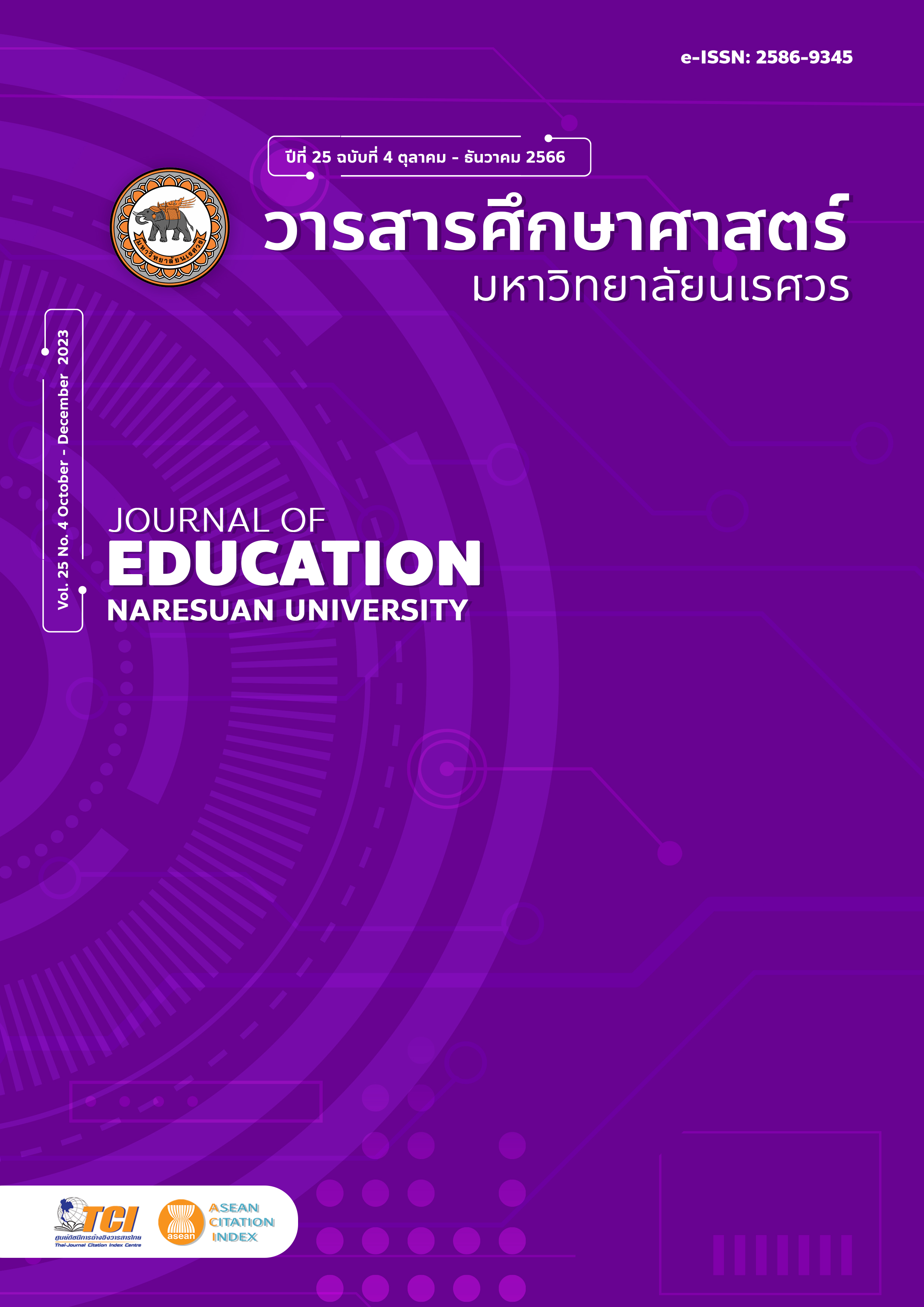THE EFFECTS OF THE LEARNING ACTIVITIES BASED ON TRISIKKHA TO ENHANCE THE STUDY RESPONSIBILITIES OF MATTHAYOMSUKSA 2 STUDENTS AT TRIAMUDOMSUKSANOMKLAO NONTHABURI SCHOOL
Main Article Content
Abstract
The purposes of this research were 1) to develop learning activities based on Trisikkha to develop the learning responsibility and 2) to study the effects of the learning activities based on Trisikkha to enhance the study responsibilities. This research was the quasi experimental research. The samples used in this research were obtained by cluster random sampling 2 rooms by experimental group (28 students) and control group (28 students). The experimental group participated in 11 activities for 50 minutes each time. Qualified research instrument were used: 1) Learning activities based on Trisikha to develop learning responsibility. 2) The learning responsibility questionnaire. 3) Questionnaire of students' opinions on the learning activities based on Trisikkha to develop learning responsibility. 4) Learning notes. The data was analyzed using mean, standard deviation, dependent t–test and Independent t–test. The research results were as follows: 1) The students in the experimental group had scores of responsibility for studying. After studying with learning activities based on Trisikkha, their scores were higher than their pretest at .05 level of significance. 2) The students in the experimental group had scores of responsibility for studying. After studying with learning activities based on Trisikkha, their scores were higher than the posttest scores of the control group at .05 level of significance.
Article Details

This work is licensed under a Creative Commons Attribution-NonCommercial-NoDerivatives 4.0 International License.
The owner of the article does not copy or violate any of its copyright. If any copyright infringement occurs or prosecution, in any case, the Editorial Board is not involved in all the rights to the owner of the article to be performed.
References
Amonwiwat, S. (1999). The development of learning according to Buddhism: Situation process skills. Nonthaburi: Sukhothai Thammathirat Open University. [in Thai]
Areekul. V. (2010). How to take care adolescent in high technology and rapid information world. Retrieved December 7, 2020, from http://www.childfoundationpmk.org/knowledge03_02.php. [in Thai]
Boonsathirakul, J. (2018). The effects of activities based on contemplative education to develop self-determination towards studying of undergraded students. Kasetsart Educational Review, 33(1), 123-132.
Duangchamkarn, K. (1998). A comparison of the effects of individual and group counseling using behavioral theory on self responsibility of mathayomsuksa 3 students of saint Dominic School in Bangkok. (Master thesis). Bangkok: Srinakharinwirot University. [in Thai]
Ministry of Education. (2008). Basic education core curriculum, B.E. 2551. Bangkok: The Agricultural Cooperative Federation of Thailand. [in Thai]
Office of the National Education Commission. (2002). National education act 1999 and amended (No. 2)
BE 2002. Retrieved December 7, 2020, from https://www.bic.moe.go.th/images/stories/Porrorbor2542.pdf. [in Thai]
Office of the National Economic and Social Development Council. (2016). National economic and social development plan the twelfth edition 2017-2021. Retrieved December 7, 2020, from https://www.nesdc.go.th/ewt_dl_link.php?nid=6422. [in Thai]
Office of the Education Council. (2018). Research and development of models mechanisms for enhancing discipline in educational institutions basic education level responsibility and punctuality. Bangkok: Prikwan Graphics. [in Thai]
Office of the Education Council. (2019). State of Thai Education 2018/2019 Education reform in the digital age. Bangkok: Parbpim. [in Thai]
Perathoranic, C. (2019). Self-discipline: Link to moral ethics based on desirable graduate characteristics. CMU Journal of Education, 3(2), 1-10. [in Thai]
Phra Brahmagunabhorn (P.A. Payutto). (2008). How can people develop? Retrieved November 7, 2020, from https://www.watnyanaves.net/uploads/File/books/pdf/how_to_develop_people.pdf. [in Thai]
Phra Brahmagunabhorn (P.A. Payutto). (2018). Discipline: Bigger than you think. Retrieved November 7, 2020, from http://www.thammapedia.com/dhamma/books/payutto/280.pdf. [in Thai]
Samuttai, R., et al. (2017). A guide to enhancing discipline students in educational institutions basic education responsibility and punctuality. Chiang Mai: Wanida Printing. [in Thai]
Sangarsongkogk, K. (2014). Trisikkha activity model for working discipline of production technology students (Doctoral dissertation). Bangkok: Kasetsart University. [in Thai]
Somanandana, T., Boonsathirakul, J. & Onjai-Uea, P. (2019). The effects of learner development activities based on Tri-Sikkha on online media literacy of undergraduate Students. The journal of Faculty of Applied Arts, 12(2), 14-27. [in Thai]
Vasee, P. (2016). Contemplative education university and trying in education. Bangkok: Contemplative Education Center Mahidol University Printing. [in Thai].
Yamtganjanawat, K., (2009). A manual for the management of student discipline development activities in self responsibility Triamudomsuksapattanakarndonklung School (Master thesis). Bangkok: Srinakharinwirot University. [in Thai]


